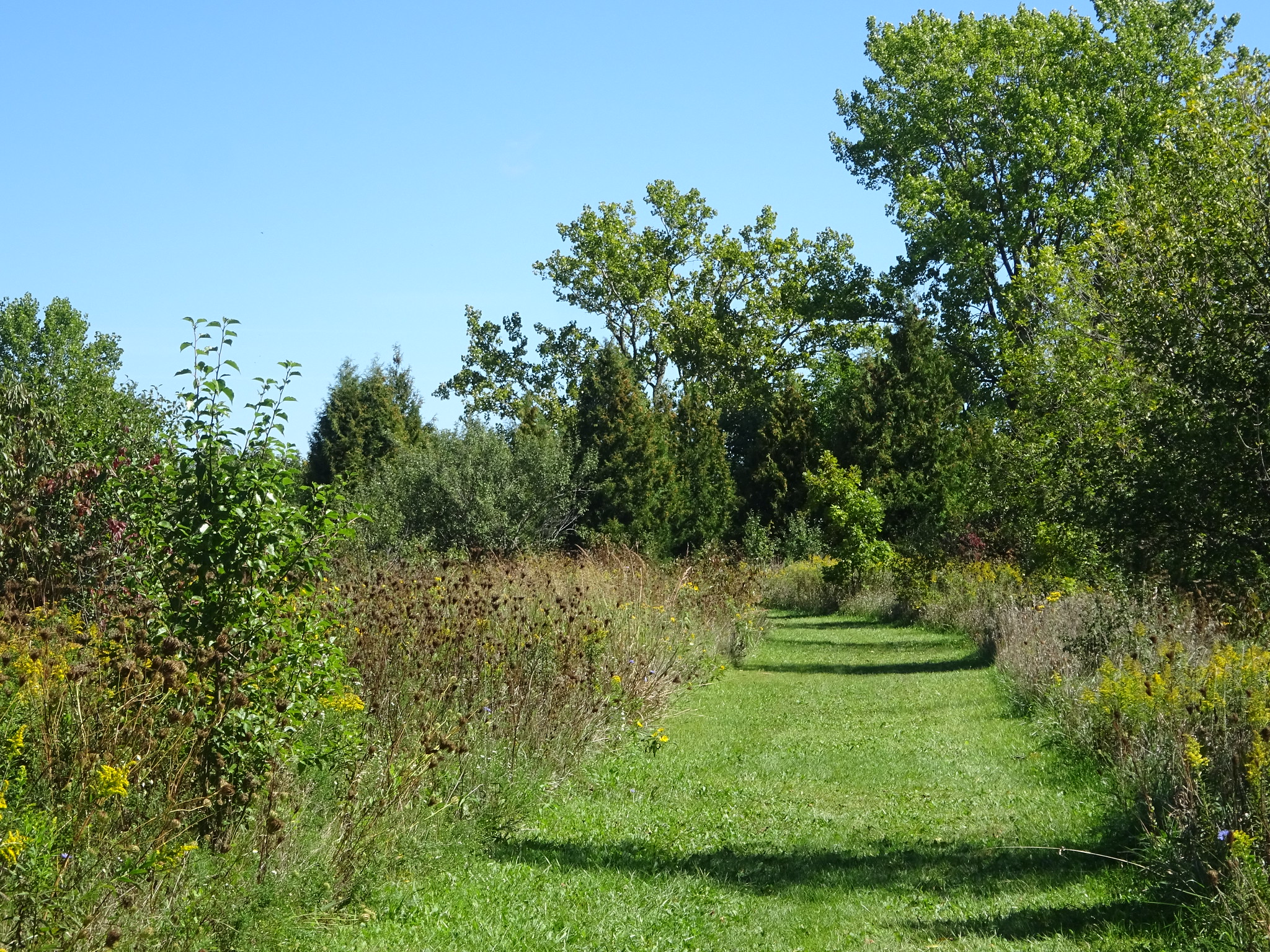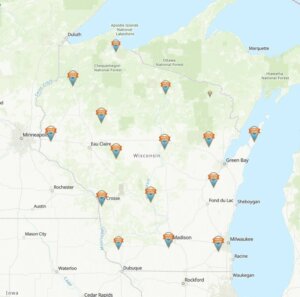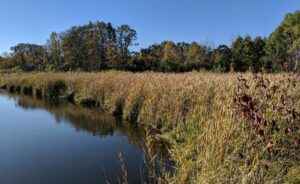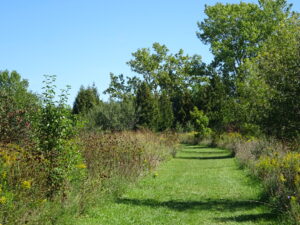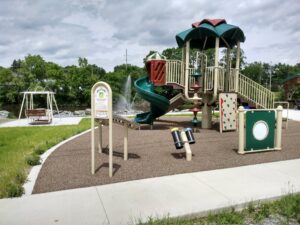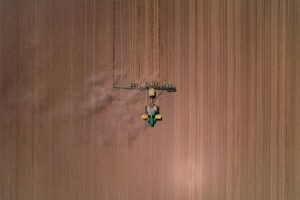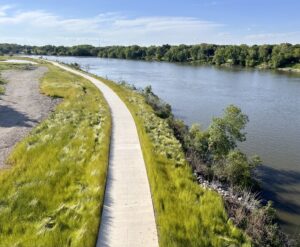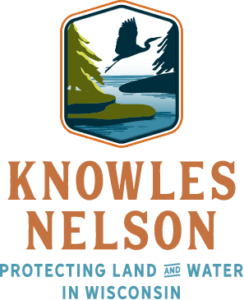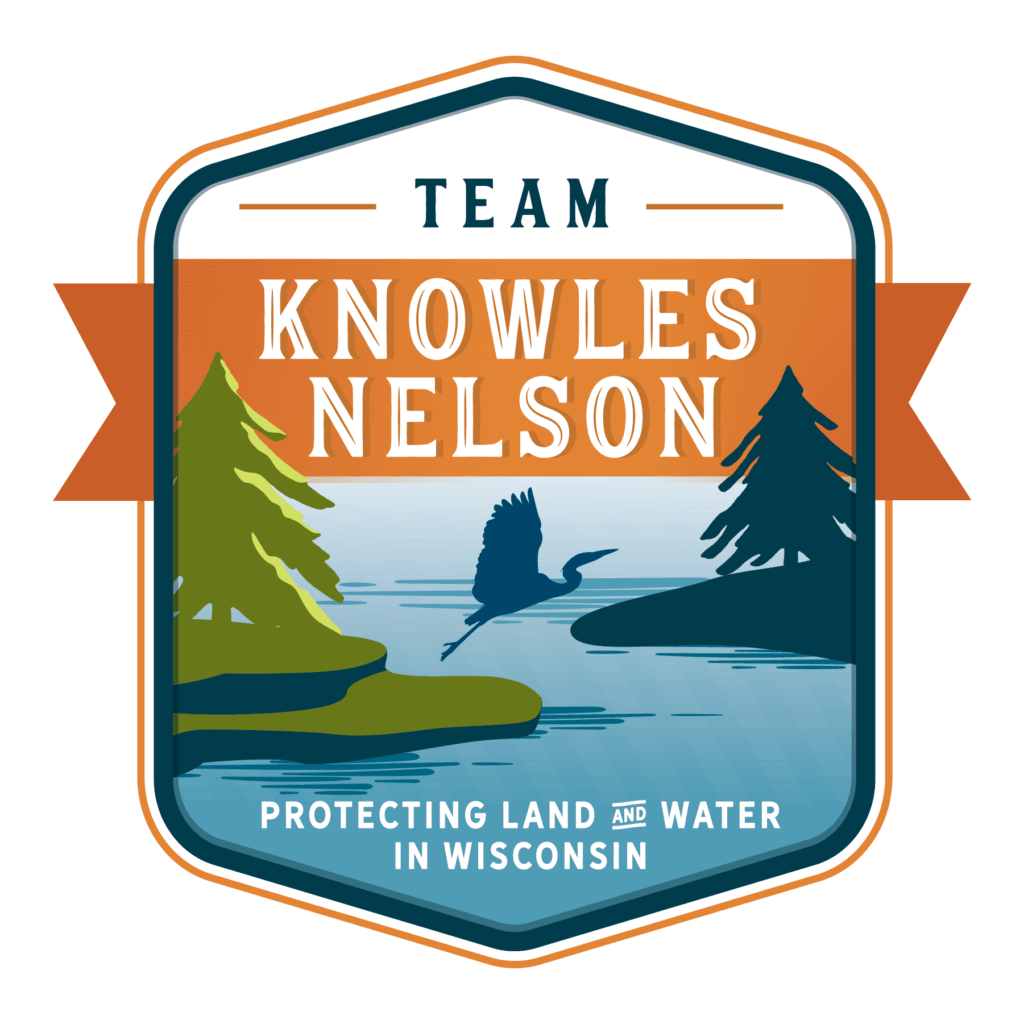In the 1950s, Cold War tensions prompted plans for a new fighter jet base in southeastern Wisconsin, named after World War II flying ace, Major Richard Bong, of Poplar, Wisconsin. When the project was abandoned, state officials divided the land among four school districts and a future recreation area. The Kenosha Unified School District (KUSD) received a large portion, setting the stage for decades of community use and eventual conservation efforts.
In 1974, the Richard Bong State Recreation Area was established, transforming the former air base site into a nature preserve and outdoor recreation hub. Over time, it became a popular attraction, drawing over 325,000 visitors annually from nearby urban areas. The recreation area offers nearly 30 miles of trails, wetlands, and woodlands for various activities, as well as a nature center.
Meanwhile, KUSD’s neighboring land became an unofficial extension of the park, with the school district allowing public access for hiking, horseback riding, and hunting. This arrangement continued for years, creating a de facto public space cherished by the Kenosha community.
When KUSD decided to sell their land in 2022, the Bong Naturalist Association (BNA) saw an opportunity to permanently protect this natural area. Over the next two years, the BNA fundraised tirelessly to match state and federal grants in order to move forward with the $1.3 million purchase. Shortly into the process, the BNA partnered with Ducks Unlimited (DU), whose support was crucial in securing a $495,000 Knowles-Nelson Stewardship grant, as well as securing funding from the North American Wetlands Conservation Act and DU’s major sponsors.
In May 2024, the Wisconsin Natural Resources Board voted to officially accept the BNA’s donation of 132 acres of land and incorporate it into the Richard Bong State Recreation Area. This decision marked the successful culmination of years of collaborative effort and the permanent protection of a community resource.
Now known as Wood Duck Reserve, the addition to Richard Bong State Recreation Area includes prairie, mature forest, streams, marshland, and while also protecting Wolf Lake. It’s a haven for wildlife, especially birds, and includes two existing trails for visitors to explore. The Knowles-Nelson Stewardship Program has been an important resource in developing the recreation area. Beyond supporting the purchase of Wood Duck Reserve, Knowles-Nelson has invested over $3.8 million into Richard Bong State Recreation Area, facilitating improvements such as dam repairs, the construction of new toilet & shower buildings, swimming area upgrades, a new fishing pier, and ongoing trail work.
The expansion of the Richard Bong State Recreation Area has benefitted everyone involved: KUSD sold land they no longer needed, dedicated conservation groups protected an important natural area, and the Kenosha community gained permanent access to more outdoor space. Most importantly, a diverse ecosystem is now protected for the future.
Featured image by Amy Bayer, 2016.

